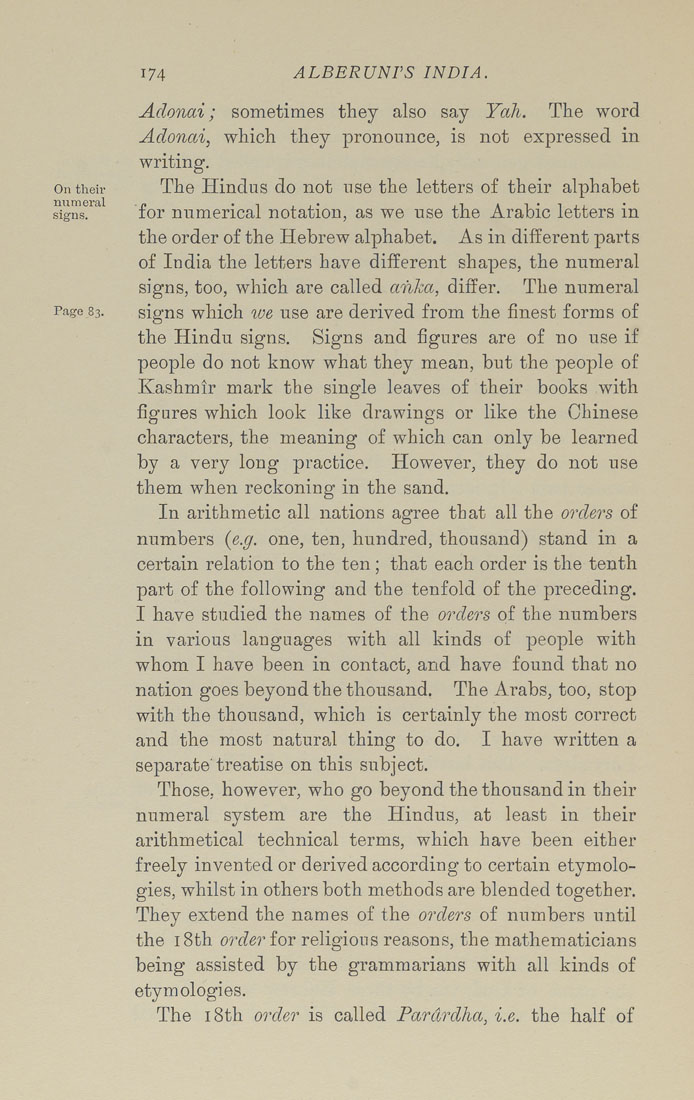Bīrūnī, Muḥammad ibn Aḥmad, Alberuni's India (v. 1)
(London : Kegan Paul, Trench, Trübner & Co., 1910.)
|
||
|
|
|
|
| Page 174 |

174 ALBERUNPS INDIA. Adonai; sometimes they also say Yah. The word Adonai, which they pronounce, is not expressed in writing. On their The Hiudus do not use the letters of their alphabet signs. for numerical notation, as we use the Arabic letters in the order of the Hebrew alphabet. As in different parts of India the letters have different shapes, the numeral signs, too, which are called anka, differ. The numeral Page 83. signs which lue use are derived from the finest forms of the Hindu signs. Signs and figures are of no use if people do not know what they mean, but the people of Kashmir mark the single leaves of their books with figures which look like drawings or like the Chinese characters, the meaning of which can only be learned by a very long practice. However, they do not use them when reckoning in the sand. In arithmetic all nations agree that all the orders of numbers (e.g. one, ten, hundred, thousand) stand in a certain relation to the ten; that each order is the tenth part of the following and the tenfold of the preceding. I have studied the names of the orders of the numbers in various languages with all kinds of people with whom I have been in contact, and have found that no nation goes beyond the thousand. The Arabs, too, stop with the thousand, which is certainly the most correct and the most natural thing to do. I have written a separate'treatise on this subject. Those, however, who go beyond the thousand in their numeral system are the Hindus, at least in their arithmetical technical terms, which have been either freely invented or derived according to certain etymolo¬ gies, whilst in others both methods are blended together. They extend the names of the orders of numbers until the 18th order ior religious reasons, the mathematicians being assisted by the grammarians with all kinds of etymologies. The i8tli order is called Pardrdha, i.e. the half of |
| Page 174 |







